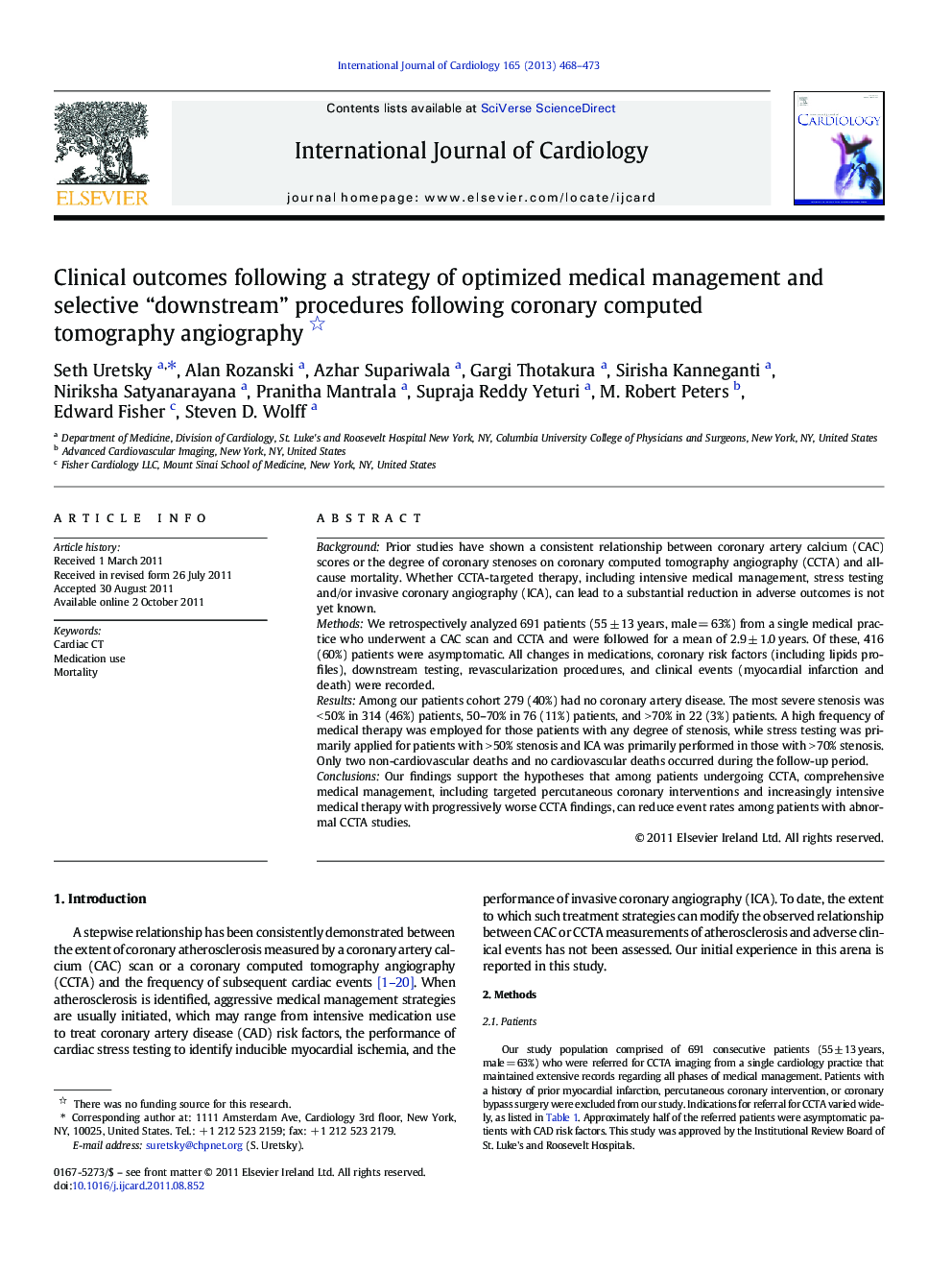| Article ID | Journal | Published Year | Pages | File Type |
|---|---|---|---|---|
| 5975956 | International Journal of Cardiology | 2013 | 6 Pages |
BackgroundPrior studies have shown a consistent relationship between coronary artery calcium (CAC) scores or the degree of coronary stenoses on coronary computed tomography angiography (CCTA) and all-cause mortality. Whether CCTA-targeted therapy, including intensive medical management, stress testing and/or invasive coronary angiography (ICA), can lead to a substantial reduction in adverse outcomes is not yet known.MethodsWe retrospectively analyzed 691 patients (55 ± 13 years, male = 63%) from a single medical practice who underwent a CAC scan and CCTA and were followed for a mean of 2.9 ± 1.0 years. Of these, 416 (60%) patients were asymptomatic. All changes in medications, coronary risk factors (including lipids profiles), downstream testing, revascularization procedures, and clinical events (myocardial infarction and death) were recorded.ResultsAmong our patients cohort 279 (40%) had no coronary artery disease. The most severe stenosis was < 50% in 314 (46%) patients, 50-70% in 76 (11%) patients, and > 70% in 22 (3%) patients. A high frequency of medical therapy was employed for those patients with any degree of stenosis, while stress testing was primarily applied for patients with > 50% stenosis and ICA was primarily performed in those with > 70% stenosis. Only two non-cardiovascular deaths and no cardiovascular deaths occurred during the follow-up period.ConclusionsOur findings support the hypotheses that among patients undergoing CCTA, comprehensive medical management, including targeted percutaneous coronary interventions and increasingly intensive medical therapy with progressively worse CCTA findings, can reduce event rates among patients with abnormal CCTA studies.
